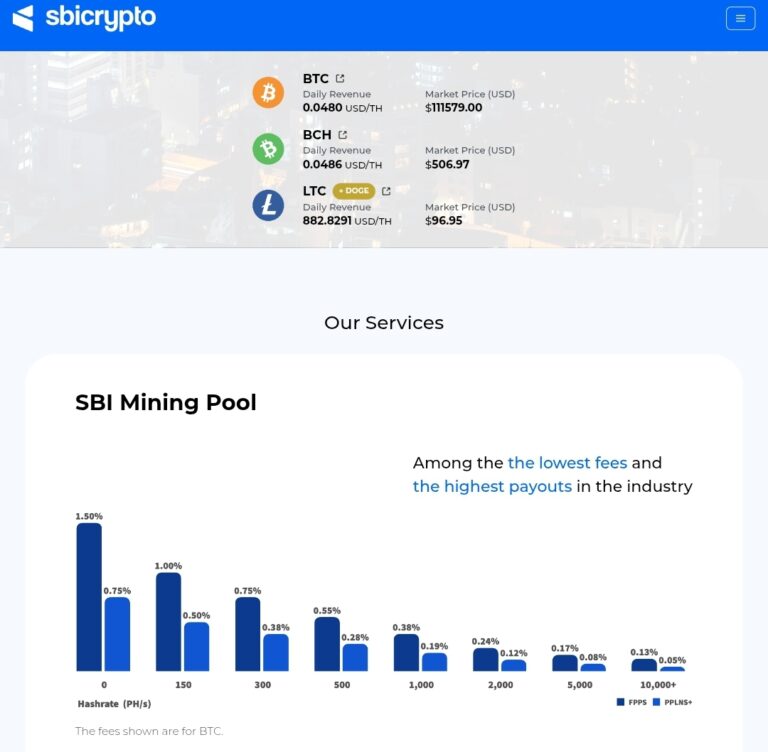Cryptocurrency mining is a critical foundational process in the world of digital currencies. In essence, it involves the validation of transactions and the addition of new blocks to the blockchain through complex computational processes. This guide delves into the intricate world of crypto currency mining, exploring its mechanics, significance, challenges, and future. If you want to start mining visit crypto miner.sh
Understanding Cryptocurrency Mining
Cryptocurrency mining serves as the backbone of various blockchain-based networks, such as Bitcoin and Ethereum.
Miners utilize specialized computing hardware to solve complex mathematical problems, known as cryptographic puzzles, in order to validate and record transactions on the blockchain.
These computations serve to secure the network, confirm transactions, and create new digital currency units.
Mining Mechanics
Mining is conducted through the use of powerful computational devices, known as mining rigs or ASICs (Application-Specific Integrated Circuits). These machines perform complex calculations, seeking a specific numerical value (nonce) that, when combined with the transaction data, produces a hash value that meets specific criteria. Once a miner successfully finds a valid hash, a new block is added to the blockchain, and the miner is rewarded with newly minted cryptocurrency and transaction fees.
Significance of Mining
1. Transaction Validation: Miners play a crucial role in validating and recording transactions on the blockchain, ensuring the accuracy and integrity of the ledger.
2. Decentralization: The mining process contributes to the decentralized nature of cryptocurrencies, as no single entity has total control over the network.
3. Incentive Mechanisms: Mining serves as an incentive mechanism, providing a means for individuals to actively participate in maintaining the network’s security and integrity.
4. New Coin Issuance: Through the mining process, new cryptocurrency units are introduced into circulation.
Challenges and Considerations
1. Energy Consumption: Cryptocurrency mining consumes significant amounts of electricity, leading to concerns about its environmental impact.
2. Hardware Costs: The initial investment in mining hardware can be substantial, requiring careful financial planning.
3. Network Difficulty: Mining difficulty adjusts over time, making it more challenging to mine new blocks as the network grows.
4. Regulatory Environment: Cryptocurrency regulations and government policies can impact the viability of mining operations in different jurisdictions.
5. Technological Advancements: Evolving technology and mining algorithms require miners to continually upgrade their hardware to remain competitive.
Future of Mining
1. Sustainability Efforts: Innovations in renewable energy and energy-efficient mining techniques are being explored to address environmental concerns.
2. Evolving Technology: Advancements in mining hardware and algorithms are expected to shape the future landscape of cryptocurrency mining.
3. Regulatory Dynamics: The impact of evolving cryptocurrency regulations on mining operations will continue to be a focal point.
is cryptocurrency mining legit
Crypto mining, when you conduct it within the frameworks of the respective blockchain protocols, we consider it legitimate process. It forms the foundational pillar of many cryptocurrency networks, effectively facilitating transaction validation and the creation of new digital currency units. The legitimacy of mining lies in its role as a critical mechanism for decentralization, security, and the establishment of trust within blockchain ecosystems.
However, it’s important to note that the legitimacy of mining can be influenced by various factors, including the compliance of miners with local regulations, environmental considerations regarding energy consumption, and adherence to consensus rules within the respective blockchain networks.
While mining itself is a legitimate practice, certain caveats require attention. These include the ethical sourcing of electricity for mining operations, compliance with local laws regarding financial and tax regulations, and an understanding of how mining impacts the broader ecosystem. Additionally, the legitimacy of mining operations is often subject to the regulatory landscape in various jurisdictions.
Ultimately, the legitimacy of crypto mining hinges on the ethical and lawful conduct of miners within the context of the evolving regulatory and environmental considerations necessitated by the industry.
Conclusion

In conclusion, cryptocurrency mining serves as a foundational process in the operation and security of blockchain networks. While it presents challenges. It also provides opportunities for individuals and businesses to participate in the growing ecosystem of digital currencies. As the industry continues to evolve, adapting to technological advancements and regulatory. Changes will be essential for miners to remain competitive and sustainable in the long term.
Through its role in securing and validating transactions, crypto currency mining continues to be a vital component of the decentralized digital economy, shaping the future of finance and technology. Read betterhash and bimining reviews




